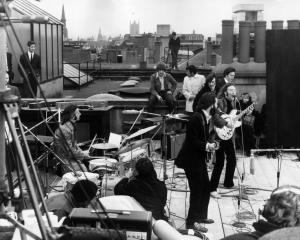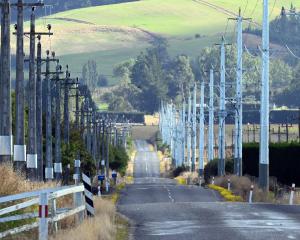
"Friends don’t let friends drive drunk," as the saying goes, and for similar reasons we call upon our respective governments to weigh in officially on Brexit.
In the post-1945 era, New Zealand and Canadian governments have generally subscribed to the UN doctrine of non-interference in the internal affairs of sovereign states.
But there are occasions when exceptions to this principle should be made. We believe such a moment has arrived two years after the UK voted narrowly to leave the EU in a fiercely contested referendum.
Historically, Britain, New Zealand and Canada have shared a deep and abiding commitment to a rules-based international order that is enshrined in institutions such as the United Nations and norms such as multilateralism and free trade.
But these interests and values are being challenged by the dogged refusal of Theresa May’s Government to recognise that its Brexit policy has a legitimacy deficit.
For many observers outside the UK — with some notable exceptions like Donald Trump and Vladimir Putin — it was always a stretch to claim that a 3.8% margin of victory for the Leave camp in a non-binding referendum was sufficient justification for the greatest change in Britain’s external policy since World War 2.
And little has happened since the referendum to boost such claims. Having publicly called for a clear Brexit mandate at the general election of June 8, 2017, Mrs May’s Conservative party had its majority in Parliament slashed and was forced to form a minority government with the support of the hardline Democratic Unionist Party (DUP).
At the same time, the May Government has, over two years, failed to develop a workable plan to withdraw from the EU that would avoid economic disaster.
According to projections by the UK Government’s own Department for Exiting the European Union and the Office of National Statistics, an increasingly likely "hard" Brexit would lower the UK GDP by 8% (£158billion; $NZ304 billion) ) and cost 2.8 million jobs. Even a "soft" Brexit that kept Britain in the single market — leaving it with no say in EU decision making — would lower the GDP by 2% (£15 billion) and put 700,000 out of work.
This is to say nothing of the intractable problem of the Irish frontier. Anything akin to the status quo would effectively separate Northern Ireland from Britain; any significant barrier would risk triggering renewed sectarian violence.
Yet the May leadership and Brexit supporters keep claiming in an Orwellian fashion that the "British people have voted to leave the EU" and reject growing demands to hold a second referendum on EU membership.
In addition, we now know, thanks to ground-breaking research by journalist Carole Cadwalladr and information provided by whistleblowers Christopher Wylie, one-time director of research at Cambridge Analytica, and Shahmir Sanni, former Vote Leave activist, the integrity of the EU referendum result has been seriously tainted by illegal money, data crimes and Russian involvement.
In May 2018, Leave.
EU, one of the main Brexit campaign organisations, was fined £70,000 by the UK Electoral Commission for exceeding its legal spending limit by at least 10% and furnishing incomplete and inaccurate documentation.
Meanwhile, Vote Leave, a campaign group headed by Boris Johnson and cabinet member Michael Gove, has been fined £61,000 by the UK Electoral Commission and referred to the police for serious breaches of electoral law.
Among other things, Vote Leave spent £675,000 with a smaller group, BeLeave, on an initiative led by Aggregate IQ using the social media to target voters. This spending should have been declared and meant that Vote Leave exceeded its legal spending limit of £7 million by almost £500,000 — a huge overspend.
Furthermore, the UK’s Information Commissioner’s Office (ICO) in mid-July fined Facebook £500,000, the maximum amount possible, for allowing the improper use of millions of users’ data by the consultancy Cambridge Analytica, and is pursuing a criminal prosecution of its parent company, SCL Elections Ltd, which is linked to a Canadian business that provided analysis for the Vote Leave campaign before the 2016 EU referendum.
Finally, there is growing evidence Putin’s Russia colluded with the Brexit camp to influence the outcome of the 2016 referendum. In many ways, Russian involvement parallels its role in the US presidential election during the same year.
Fake Twitter accounts were used to rally support for Brexit, and Alexander Yakovenko, the Russian ambassador to the UK, met frequently with LeaveEU donors, including multimillionaire Aaron Banks, co-founder of the LeaveEU campaign and Brexit’s biggest campaign donor. While Mr Banks reportedly declined offers of several lucrative Russian business deals in the build-up to the Brexit vote, another business associate and LeaveEU donor apparently received shares from a private sale of a Russian diamond company. Questions have also been raised about whether Russian money found its way into pro-leave campaigns. In particular, the UK’s National Crime Agency (NCA) is reportedly investigating alleged links between Brexit’s biggest donor and Russia.
Yet the May Government seems to be indifferent to such concerns, and seems determined to "reclaim" British sovereignty from the EU, even if it is on the back of breaking British laws.
It is time for old allies like New Zealand and Canada to firmly remind London that in a democracy the integrity and trust of the voting public is dependent on governments upholding the rule of law, and that any failure to do so not only diminishes the UK but also weakens the fabric of the liberal democratic order at a time when it is being threatened by the likes of Putin’s authoritarian regime in Russia.
- Prof Robert Patman teaches international politics at the University of Otago. Prof David Welch teaches global governance at the University of Waterloo. They are working on a book on why leaders fail to learn from history.
Comments
The article again omits the background to Brexit. The UK Labour Government reneging on their 2005 election manifesto to hold a referendum on the EU constitution. Their ratification of the Treaty of Lisbon,a significant building block towards a Federal Europe without any electoral mandate in the UK. This led to the emergence of UKIP as a powerful political force and ultimately to the 2016 Referendum. The UK Government conducted "Project Fear" and spent a fortune delivering a leaflet to every household in the UK. "Project Fear" is still going on. Trade with the EU accounts for about 10% to 12% of UK GDP so suggesting an 8% loss of GDP is very unlikely. The UK is trying to work through a deal with the EU but the EU is rejecting every aspect based on their sacred 4 freedoms. These 4 freedoms were never mandated by the UK electorate.
The Guardian has accused a group of New Zealand businessmen of being behind Brexit (Chris Chandler and the Legatum Institute) so seems unlikely that New Zealanders will move to stop the process when the benefits to NZ will be enormous.
You seem to be suggesting the referendum was rigged.
It is not NZ's place to influence the democratic processes of another country.
Many people voted to leave the EU because the immigration numbers were perceived as a future overthrow of the culture and liberties that England had fought so hard for centuries to establish.











